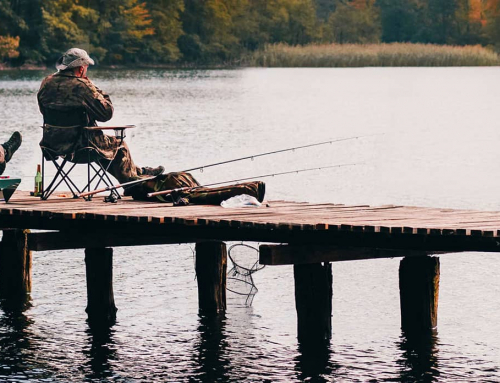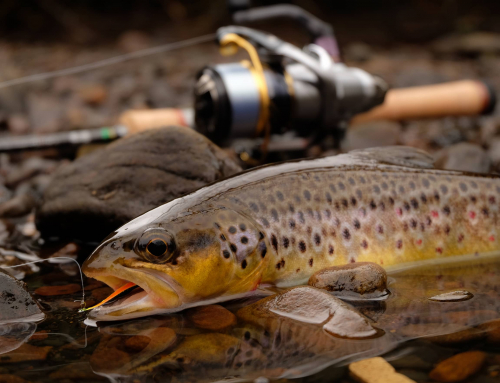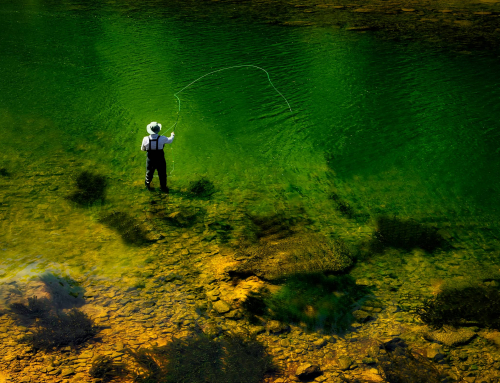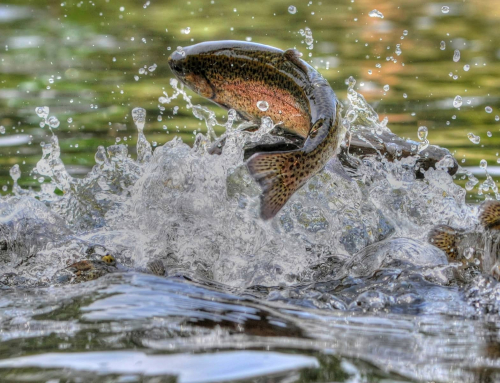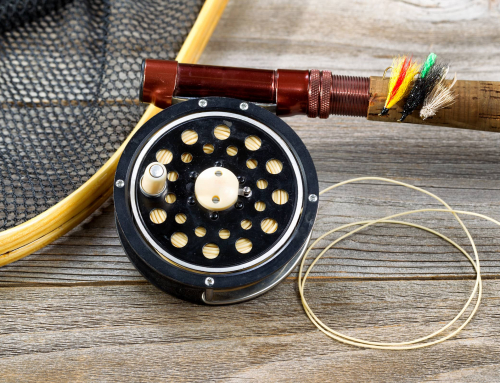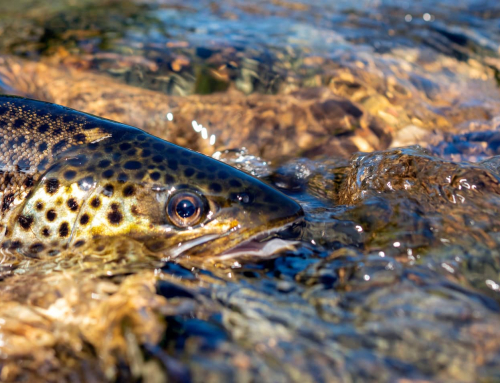We may earn money or products from the companies mentioned in this post at no additional cost to you.
How Do I Get Started Fly Fishing?
Let’s imagine you’ve just watched A River Runs Through It and you’re eager to start spending time on the river fly-fishing. No matter how you got into it, fly fishing is a great hobby for all ages, but there’s more to it than grabbing a rod and reel and hitting the river.
Fly fishing is one of the most complex forms on angling and takes proper skill, equipment, and location to do it right. One of the most loaded questions is – how do I learn to fly-fish? Let’s review the best ways to start fly fishing including what equipment you need, what skills you need, and what else you can do to be prepared for a great first outing.
Equipment Checklist
You don’t need to be weighed down with hundreds of dollars’ worth of fly-fishing equipment to try it out, but there are some basic requirements. Check these boxes before leaving on your first trip
Rod & Reel – It’s difficult to fly fish if you don’t have a rod and reel. Luckily, beginners don’t need an advanced name-brand rod and reel. If it’s your first time look at purchasing an all-around rod and reel combination or look to rent one. Don’t waste money if you aren’t certain you’ll love fly fishing.
Line – You only need fishing line for traditional spin-fishing, but fly-fishing requires a fly line, leader, and tippet at the least. A rig that’s not setup with the right line will scare away any potential fish.
Flies – Use resources including your local bait shop to figure out what’s hatching and styles of fly the local fish are hitting.
Tools – You need proper tools for fly fishing including a multi-tool, nail-clippers, and more.
Net – Fly-fish species are much more fragile than sportfish like bass. Fly-fishing nets are designed to gently receive fish for catch and release.
Tacklebox or Flybox – Used to hold fly-fishing supplies.
Vest – Because you’re normally fly-fishing in the water and not near it, you need a fly-fishing vest for quick access to your tools. A vest isn’t 100% necessary if you’re going the first time or shore fishing.
Waders – Keep yourself dry with waders.
Sunglasses – Aim for polarized sunglasses. They cut down on damaging UV and glare to help you see the water more clearly.
Hat/sunblock – A big sunburn can ruin an otherwise nice day on the water.
Insect Repellant – Fly-fishing is all about faking bugs for fish but fly-fishing spots are notorious for real bugs. Bring insect repellant so you don’t spook any fish while swatting.
Wide-brimmed Hat – Helps keep sun out of your eyes and reduces risk of sunburn.
Fishing license – Any public lands require a fishing license.
Local rules and regulations – Know all the rules of regulations of where you’re fishing including size limitations and what you can take.
The Art of Fly Fishing
You may have been spin-fishing for forty years, but fly fishing is its own skill that requires specialized knowledge. You can learn the art and techniques of fly fishing on your own but it’s much more helpful to go with an experienced fly fisher for your first trip or take some lessons beforehand. Let’s get details on how to learn the art of fly-fishing.
Go with a Guide
The best way to have a pleasant first experience is by going with a local fly-fishing guide. Guides know the waters, currents, temperatures, what the local fish like, and much more. An experienced guide will set you up with the right equipment, get you to the right spots, and teach you the techniques for landing a lunker. Many fly-fishing guides offer free equipment rentals, so you don’t have to shell out on new equipment in case you don’t take to the art.
Guides are more expensive than setting out on your own but may be cheaper if they provide equipment and you’re not ready to purchase your own yet. Look for a local guide with many years of experience and positive online reviews.
Local Fly Shop / Local Community
If there’s a fly shop close to the area you want to fish – you can bet they know about it. A local fly shop is an excellent place to grab equipment and a fishing license, but most fly shops are also community fishing resources.
You can hang out at the local shop to learn what areas you can fish nearby, what flies the fish are hitting, hot spots, or where you can find a great local guide and lessons. Many fly-fishing shops offer in-house lessons and guides. Look to packaged first-time deals to save some money.
Online Videos
You can use the internet to learn about anything and fly fishing is no different. There are countless videos on YouTube and fly-fishing sites that detail everything from tying up your first rig to properly netting your catch. Learning directly from a guide or fly shop is best but online videos are a great tool too.
Where to Fish?
You should decide where to fish before grabbing your equipment. Every body of water is different and will require different lines, flies, and technique. You can fish ponds, lakes, creeks, and rivers with a fly rod but if you don’t have the right tools you won’t catch anything. Learning what equipment and tools you need for a creek or lake takes experience, making lessons or a guide even more helpful.
Ways to Save Money Getting Started
Fly-fishing can be an expensive hobby, but only if you let it be. If you’re going for the first time and don’t want to lose out on big money use these money saving tips:
Buy used – If it works it should make no difference whether someone has used it already, especially for rookies. Buy as much used equipment you can.
Rent – Rent instead of buying fly-fishing equipment. If you love it you can consider purchasing your own.
Comparison Shop – Sometimes the best deals are online, sometimes they’re at your local fishing store. Like anything else you need to comparison shop to find the best deals.
Don’t Buy Just Because – We get it, you want to be certain you’re outfitted, and all those flies look so pretty. Avoid buying equipment just because, or just in case to avoid bringing a bunch of equipment you’ll never use. The basics are fine for your first time.
Let’s Hit the River
With your equipment, knowledge, and local resources in hand you’re ready to hit the water and live all your fly-fishing fantasies. You may not catch a ton of fish your first go but now you’re setup for a hobby that can easily last a lifetime.
